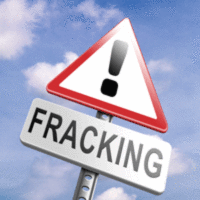MENU
- Home
- Overview
- Attorneys
- Practice Areas
- Firm News
- Blog
- Contact
 Efforts to generate energy and protect the environment have been at odds for decades. Fracking, also known as hydraulic fracturing, is a technique that drills down into the earth and injects a high pressure water, sand, and chemical mix deep into shale rock formations to extract natural gas trapped inside. The process is extremely water intensive and all wastewater used in the process becomes contaminated with the proprietary chemical mix. The gas released in the process flows up through a well to be captured above ground. The well usually passes through a water table before being captured.
Efforts to generate energy and protect the environment have been at odds for decades. Fracking, also known as hydraulic fracturing, is a technique that drills down into the earth and injects a high pressure water, sand, and chemical mix deep into shale rock formations to extract natural gas trapped inside. The process is extremely water intensive and all wastewater used in the process becomes contaminated with the proprietary chemical mix. The gas released in the process flows up through a well to be captured above ground. The well usually passes through a water table before being captured.
The Delaware River flows through New York, New Jersey, Pennsylvania, and Delaware. It has 2,000 tributaries within the surrounding watershed, which covers over 13,500 miles. The Delaware River provides drinking water and boating opportunities to millions of citizens.
In the past, contamination from industrial operations and development hit the river hard. At one point, the river was so contaminated that fish could not survive. As a result, the four bordering states formed an interstate compact called the Delaware River Basin Commission to protect the river. Improvements have been made over time and fish are once again able to survive in the water. Work remains to enable the river to recover and thrive.
The river is still threatened by residual industrial contamination and overdevelopment. Today, concerns have been raised about the negative impact that nearby fracking operations have on the health of the river and the quality of the drinking water it supplies.
Three of the four Governors of the compact states met recently to discuss the future of the river. The Governors were encouraged by recent federal funding for the Delaware River Basin Restoration Program and discussed programs in their states designed to address the river’s problems. Yet, more work needs to be done. Consensus is forming around the idea that preventing the contamination of drinking water is the sensible approach to protecting the public health and the health of our waterways.
The three Governors agreed that a ban on fracking within the basin will be needed to protect the river from the threat of new contamination. They signed a proclamation to reaffirm their commitment to work together to make the Delaware River Basin a national model for sustainable economic development, drinkable clean water, healthy fish and wildlife populations, outdoor recreation, and nature-based climate resilience.
The Commission has proposed a prohibition on fracking in the basin. The Commission is also considering changing how contaminated wastewater generated from fracking is stored, treated, and disposed within the basin. Environmental advocacy groups support the ban on fracking and on the disposal of fracking wastewater in the basin. To date, thousands of comments have been submitted by the public on the issue.
Contaminated drinking water can cause serious health problems. If you have been exposed to contaminated drinking water or are concerned that water near you is being contaminated, contact a Delaware environmental lawyer at Jacobs & Crumplar, P.A. today. Call us at 302-656-5445 or complete an online form for a free consultation. Located in Wilmington and Georgetown, Delaware, we serve clients throughout the state, including Dover, New Castle County, and Sussex County.